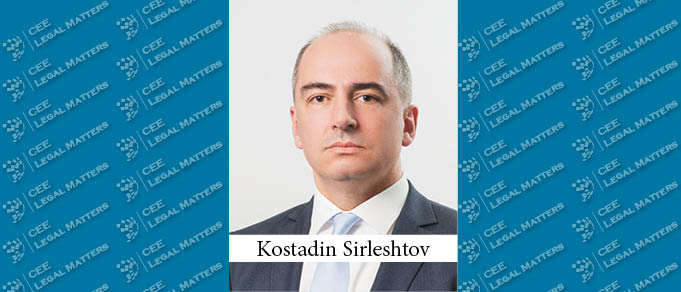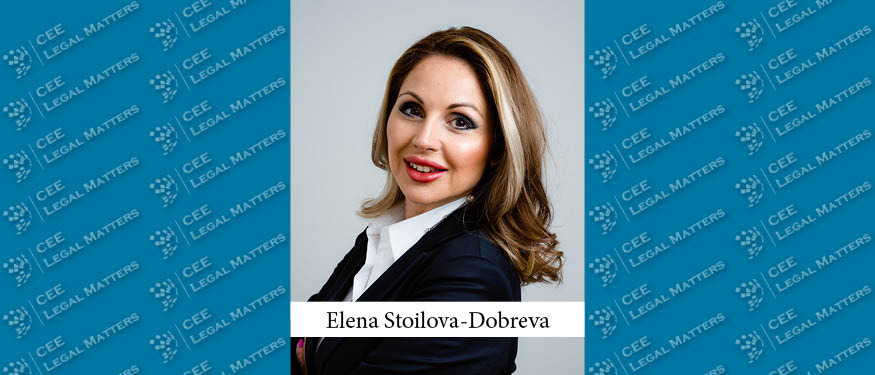Bulgaria’s energy sector has seen a wave of activity over the past year, spanning offshore oil and gas exploration, large-scale renewables, and battery storage projects, keeping CMS Sofia’s Energy, Projects, and Construction team at full speed, according to Partner Kostadin Sirleshtov. Backed by strong investor interest and a more stable regulatory environment, the sector’s upward trend looks set to continue into 2025.
Elena Stoilova-Dobreva Becomes Co-Managing Partner at Tzvetkova, Tzvetkov & Dobreva
Elena Stoilova-Dobreva has become a Co-Managing Partner at Tzvetkova & Partners and, as a result, the firm has changed its name to Tzvetkova, Tzvetkov & Dobreva.
The Debrief: March 2025
In The Debrief, our Practice Leaders across CEE share updates on recent and upcoming legislation, consider the impact of recent court decisions, showcase landmark projects, and keep our readers apprised of the latest developments impacting their respective practice areas.
The Corner Office: The Next Big Thing
In The Corner Office, we ask Managing Partners at law firms across Central and Eastern Europe about their backgrounds, strategies, and responsibilities. This time around, we asked: For 2025, what is the one sector or industry in the country that shows the most promise for growth, and why?
Bulgaria: Energy Storage Infrastructure on the Rise in Bulgaria
In recent years, Bulgaria has increasingly prioritized the development of energy storage infrastructure as part of its broader transition to a more sustainable and resilient energy system. With growing renewable energy capacity, particularly from solar and wind sources, the need for efficient storage solutions has become critical to balancing supply and demand.
Wolf Theiss Advises DSK Bank and OTP Bank on EUR 88 Million Green Financing for Bravo Sky Commercial Development in Bulgaria
Wolf Theiss has advised DSK Bank and OTP Bank on the EUR 88 million real estate financing of Bravo Sky. Lex Locus reportedly advised the borrowers.
Popov, Arnaudov & Partners Advises Ministry of Energy on Bulgaria on RES Act Amendments
Popov, Arnaudov & Partners has advised Bulgaria’s Ministry of Energy on the adoption of amendments to the Renewable Energy Sources Act, passed on May 14, 2025.
CMS Advised Aratiden on Co-Located Battery Storage Project
CMS has advised Aratiden on the development of a co-located battery storage project as well as on an EPC agreement with Optimal Energy Solutions JSC. Kirov and Bratuleva reportedly advised Optimal Energy Solutions JSC.
Schoenherr Advises Alstom Transport on EUR 720 Million Tender for Bulgarian Ministry of Transport and Communications
Schoenherr has advised Alstom Transport as consortium lead in securing and finalizing a EUR 720 million tender for the Bulgarian Ministry of Transport and Communications to supply 35 interregional electric trains along with 15 years of maintenance services.
Galya Gugusheva Joins Gugushev & Partners as Senior Partner
Galya Gugusheva has joined Gugushev & Partners as a Senior Partner.
The Epidemic of Generic: The Problem with Law Firm Messaging
Big law firms can coast on boring slogans. They’ve got the clout, the infrastructure, and the impressive list of past clients to do the talking. But if you’re a smaller firm and your website sounds like everyone else’s, you are disappearing into the beige background of legal marketing noise.
DGKV and Tsvetkova Bebov & Partners Advise on Republic of Bulgaria’s EUR 4 Billion Sovereign Bond Issuance and GMTN Program Update to EUR 27 Billion
Djingov, Gouginski, Kyutchukov & Velichkov, working with Linklaters, has advised joint lead managers Citigroup, ING Bank, J.P. Morgan, and UniCredit on the dual-tranche EUR 4 billion sovereign bond issuance by the Republic of Bulgaria under its EUR 27 billion global medium-term note program. At the same time, DGKV advised arrangers and dealers BNP Paribas, HSBC, and Societe Generale on the update of the Republic of Bulgaria’s GMTN Program to EUR 27 billion. Tsvetkova Bebov & Partners, member of Eversheds Sutherland, and Clifford Chance advised the Republic of Bulgaria.
Kinstellar, Koutalidis, and Potamitis Vekris Advise on Advent's Acquisition of TBI Bank in Bulgaria, Greece, Romania, and Turkey from 4finance Holding
Kinstellar and Potamitis Vekris, working alongside Milbank, have advised Advent on its acquisition of TBI Bank from 4finance Holding. Koutalidis, working with White & Case, advised 4finance Holding. Arendt reportedly advised Advent as well.
Why Most Law Firm Websites Won’t Meet the 2025 Accessibility Deadline
The European Accessibility Act (EAA), approved in 2019, takes effect on June 28, 2025. The Act requires a wide range of products and services – such as consumer electronics, vending machines, websites, and mobile apps – to meet accessibility standards for people with disabilities.
Introduction of a Unified Electronic Employment Record in Bulgaria
Following an amendment in the Bulgarian Labour Code in late 2023 which will enter into force on 1 June 2025, Bulgaria is moving towards the introduction of a unified electronic employment record. This change will affect all Bulgarian employers and their employees and bring an end to the issuance and maintenance of paper-based labour books.
Dealing with Private Equity Interest
What do you do when a private equity fund comes knocking on your door? Ask you out for a dinner to talk about your business?
PHH and Kambourov & Partners Advise on RM Equity Partners' Acquisition of Carista
PHH Attorneys at Law, working with Kambourov & Partners, has advised European growth investor RM Equity Partners on its acquisition of a majority stake in Carista.
CMS Advises Shell on Award of Offshore Block 1-26 Han Tervel in Black Sea
CMS has advised Shell Exploration and Production 96 on winning the tender and concluding the prospecting and exploration agreement for Block 1-26 Han Tervel offshore Bulgaria.



















